
"I happened to pray one night with the Prophet, peace and blessings be upon him. The Prophet started reciting al-Baqarah chapter of the Quran and I thought he would stop after 100 verses.
But when he went beyond it I thought that he may want to recite the whole chapter in one Rakah.
When he finished al-Baqarah I thought he would do Ruku but then he immediately started reciting al-Imran and when he finished he started reciting an-Nisa.
The Prophet was reciting very slowly with enough pauses and would do Tasbih (praising God) and Dua (supplication) according to the subject being discussed in the relevant Ayah.
After that the Prophet did Ruku (bowomg). In Ruku he stayed as long as he did when he was in Qiyam (standing in prayer). After Ruku he stood up for almost same time and then he performed Sajdah (prostration) and stayed there as long as he recited Quran while doing Qiyam". (Hudaifa, may God be pleased with him, narrated this hadith as in Sahih al Muslim, Nasai)
Of course, not all the Prayers of the Prophet were this long. In public he would pray for a shorter period of time and ask other imams to do the same. The Prophet use to make dua in Sajdah not just tasbeeh as we do in obligatory prayers. He used to cry in Sajdah. He would spend an extended amount of his time in Sajdah whenever he was praying on his own. Many times, however, Muslims would join him when they found him praying alone.
Aisha, may God be pleased with her, mentions that: the Prophet one night stood up for Salah and he stayed in it for so long that I thought the Prophet had passed away or died. When I felt that way I stood up shook his toe and I felt the movement then I laid down again and I heard the Prophet saying in Sajdah "I seek refuge in Your pleasure from Your wrath, and in Your pardon from Your punishment, and in You from You. I cannot enumerate Your praises as You praise Yourself." (Transliteration: Audhu bi ridaka min sakhatika, wa bi muafatika min uqubatika wa bika minka, la uhsiy thana'an alayka, anta kama athnayta ala nafsika).
When he stood up from the Sajdah he asked Aisha, "do you think God's Prophet has betrayed you?" Aisha responded "No Preophet of God, because of the long Sajdah I thought you had died." (hadith from Baihaqi but Dua wording from Muwatta Imam Malik)
One of the Prophet's companion, Abdullah ibn Zubayr, would pray with such concentration that when he was in Sajdah the sparrows would come flying and sit on his back. In a separate narration, Abdullah ibn Abbas, another companion, said if you want to see how the Prophet of God used to pray, you should copy how Abdullah ibn Zubayr used to pray.
And consider these two Hadiths from the Sahih Muslim:
Ma'dan b. Talha reported: I met Thauban, the freed slave of God's Messenger, and asked him to tell me about an act for which, if I do it, God will admit me to Paradise, or I asked about the act which was loved most by God. He gave no reply. I again asked and he gave no reply. I asked him for the third time, and he said: I asked God's Messenger about that and he said: Make frequent prostrations before God, for you will not make one prostration without raising you a degree because of it, and removing a sin from you, because of it. Ma'dan said that then he met Abu al-Darda' and when he asked him, he received a reply similar to that given by Thauban.
In the second Hadith, Rabi'a b. Ka'b said: I was with God's Messenger one night and I brought him water and what he required. He said to me: Ask (anything you like). I said: I ask your company in Paradise. He (the Prophet) said: Or anything else besides it. I said: That is all (what I require). He said: Then help me to achieve this for you by devoting yourself often to prostration.
Sujood is truly a humbling experience. We can beg for God's forgiveness and cry by thinking about our misdeeds, as well as seek refuge in God from the Hellfire. We are in one of the most submissive physical positions when in Sajdah. It is one of the best occasions to ask God for forgiveness, guidance, and all that we want. It is one of the best positions in which to talk to God. Seeking God's pleasure and forgiveness need to be given top priority in these remaining days and nights of Ramadan.

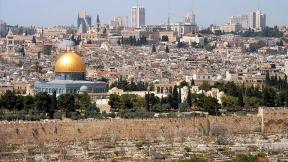
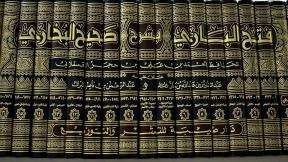
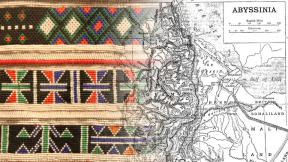
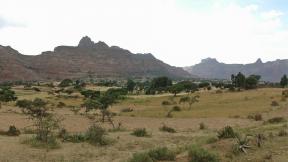
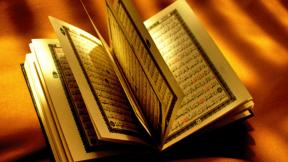


Comments
Assalaamun alaekum
Assalaamun alaekum warahmatulillah,fear Allah wherever you are
Location
May Our Sin Be Forgive In
May Our Sin Be Forgive In This Mouth
Location
witir prayer
can I ask for anything I want from god after I rise up from rukoo
Location
quran
Assalamu alaikum
I want to ask one question that can I read quran in English or it is compulsory to read quran in arbia
Location
brother if u recite the
brother if u recite the quaran in English the pronunciation will get wrong. And the meaning will be changed as well. So try reciting Quaran in Arabic and read the translation in English.
Location
Sajda
Is a Muslim allowed to ask for blessings and other good things from Allah, in sajda using any language, or it only has to be Arabic?
Location
God Know all languages
Just talk to Him. He knows your language. God created everything including all languages. If you know Arabic do it in Arabic. But if you don't then know that He knows your language. Imam Abu Hanifah even allowed those who do not know Arabic to say it in their language until they learn Arabic. In obligatory salat you can use Arabic if you know it but in Nafil salat and in your own sajdah talk to him in the language you know.
Location
sajda
Can we ask anything like seeking refuge, marriage etc..plz tell me.
Location
A salaam aleikum
A salaam aleikum
the revelation of the Quran was in Arabic and hence Allah(swt) delights when we supplicate in Arabic. Still he is an understanding God and knows that not all of mankind can recite duah in Arabic. He understands all languages but it is narrated that he is delighted when a Muslim errs when trying to supplicate in Arabic because he is still learning. Therefore try and learn duahs in Arabic but you can supplicate in any language. A salaam aleikum warahmatulahy wabarakatuh
Location
The Hadith and seerah
The Hadith and seerah collection has been really composed in away that it is inspiring for the readers.It shows the greatness of the prophet and inspires one to follow his practices.
Location
Pages
Add new comment